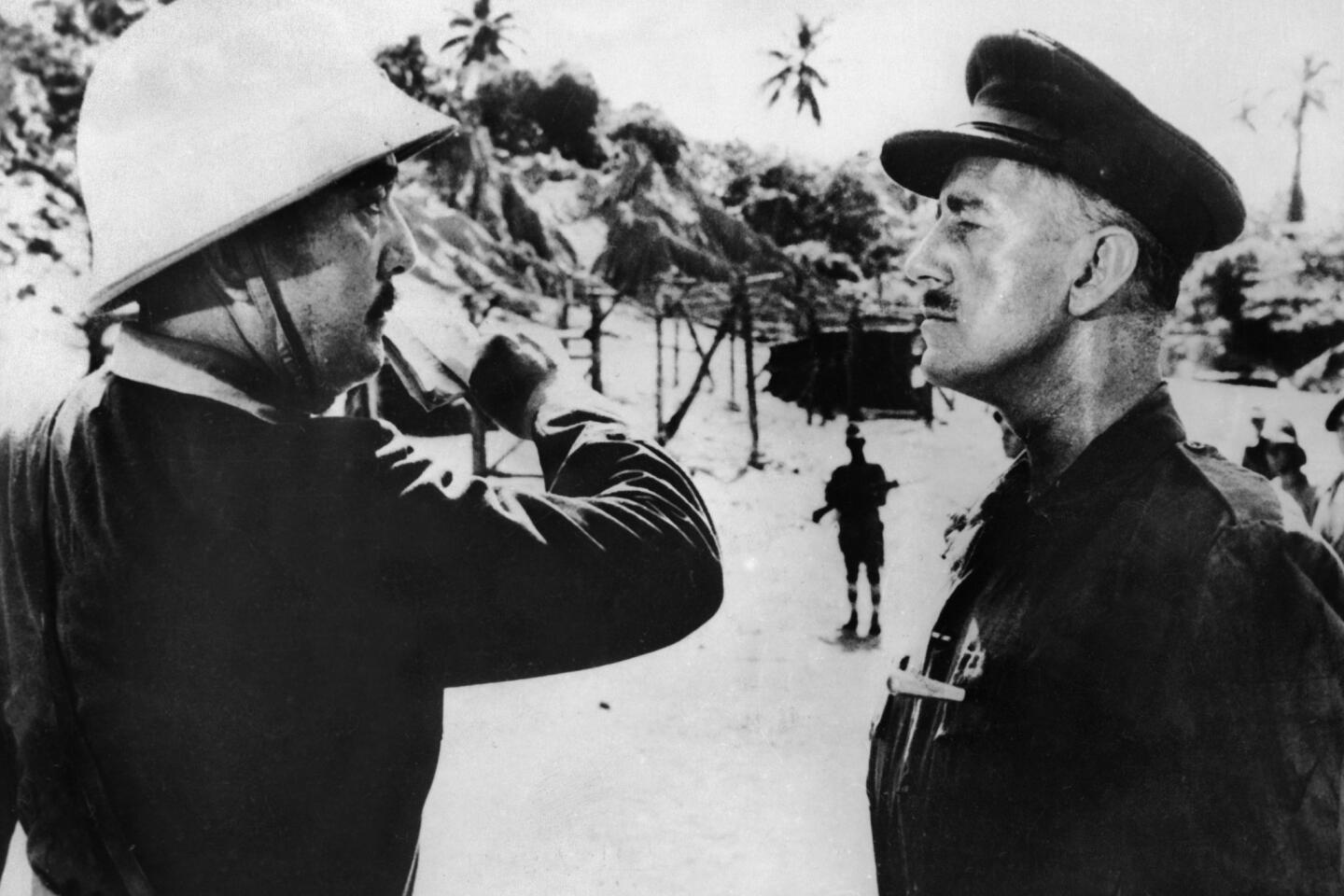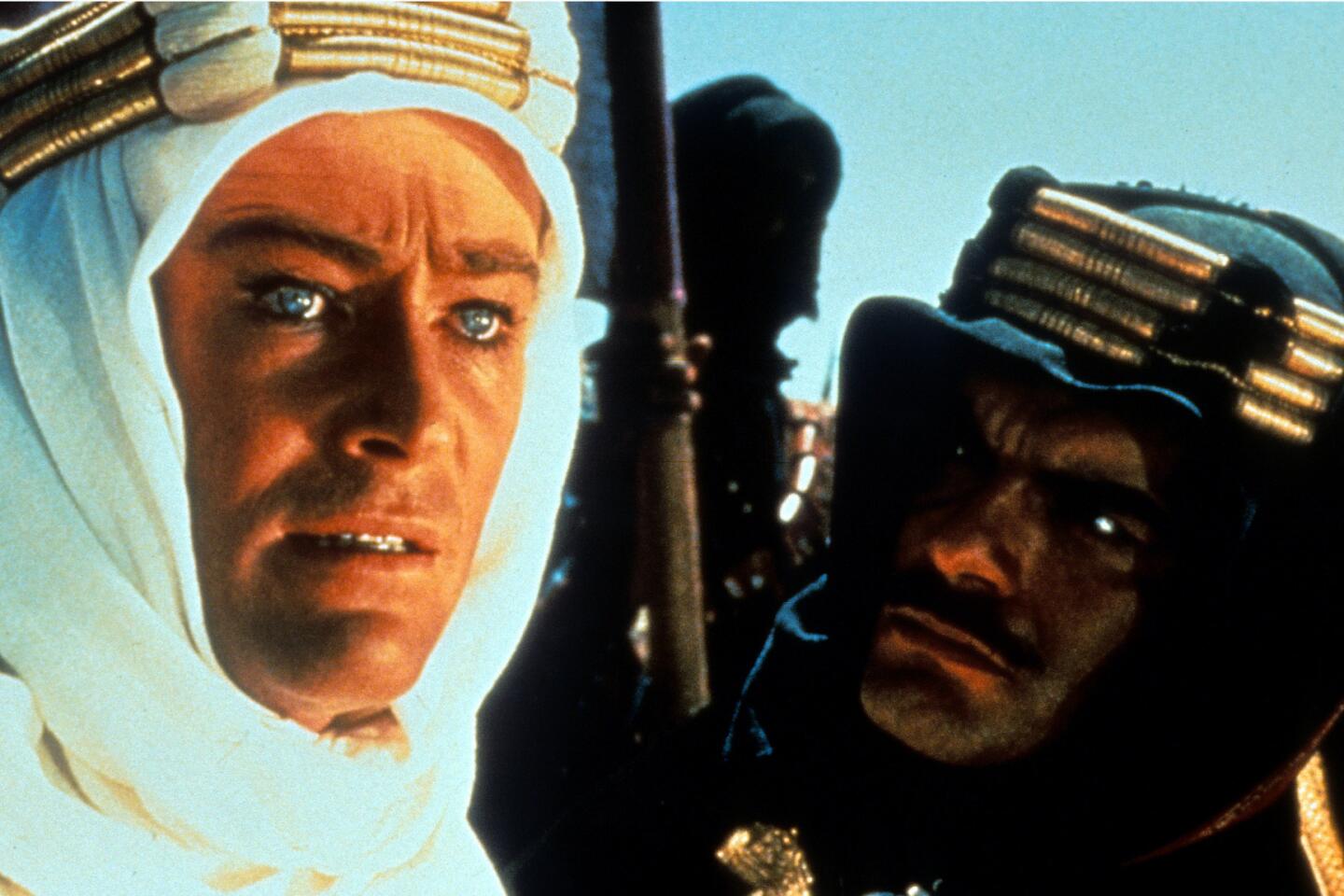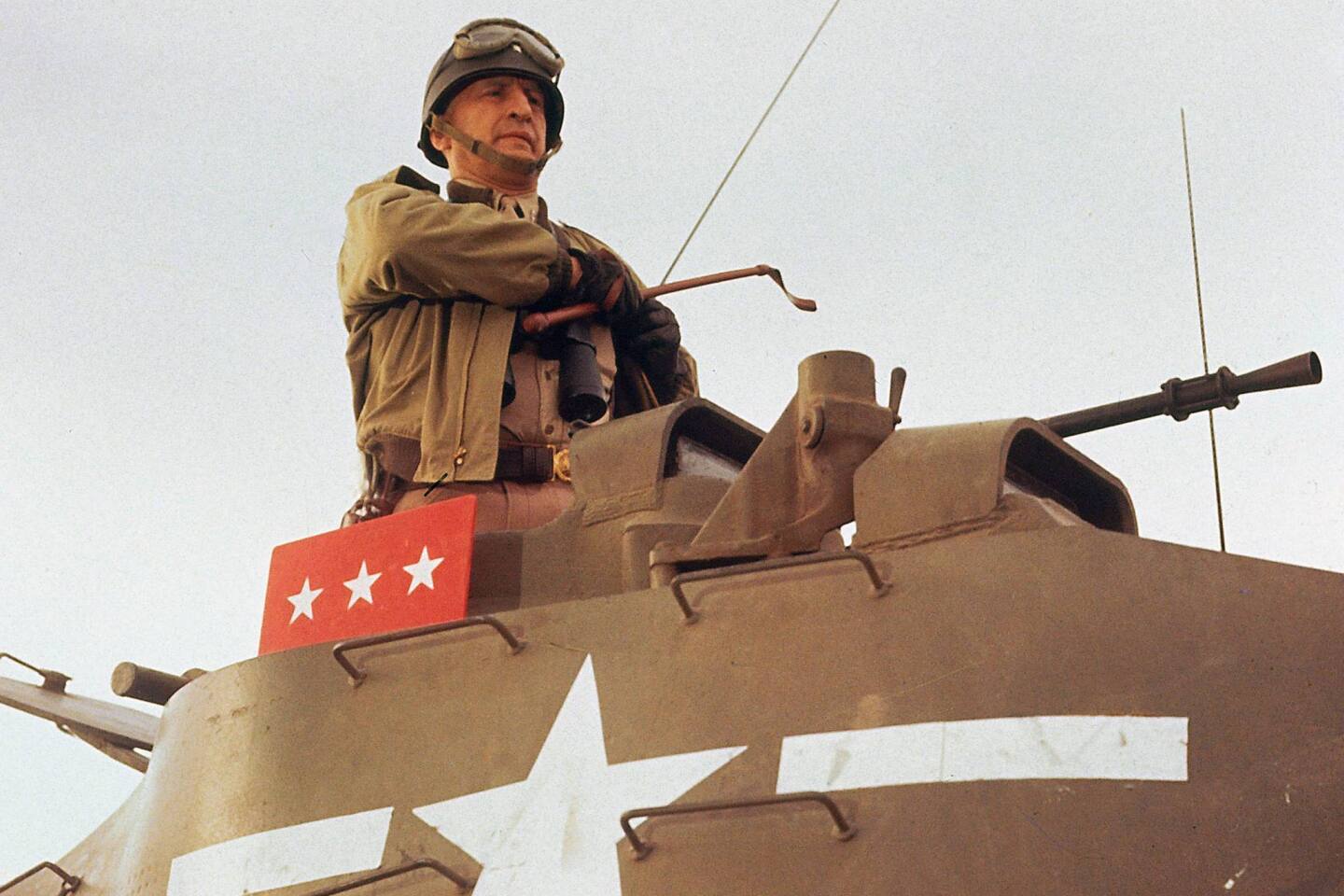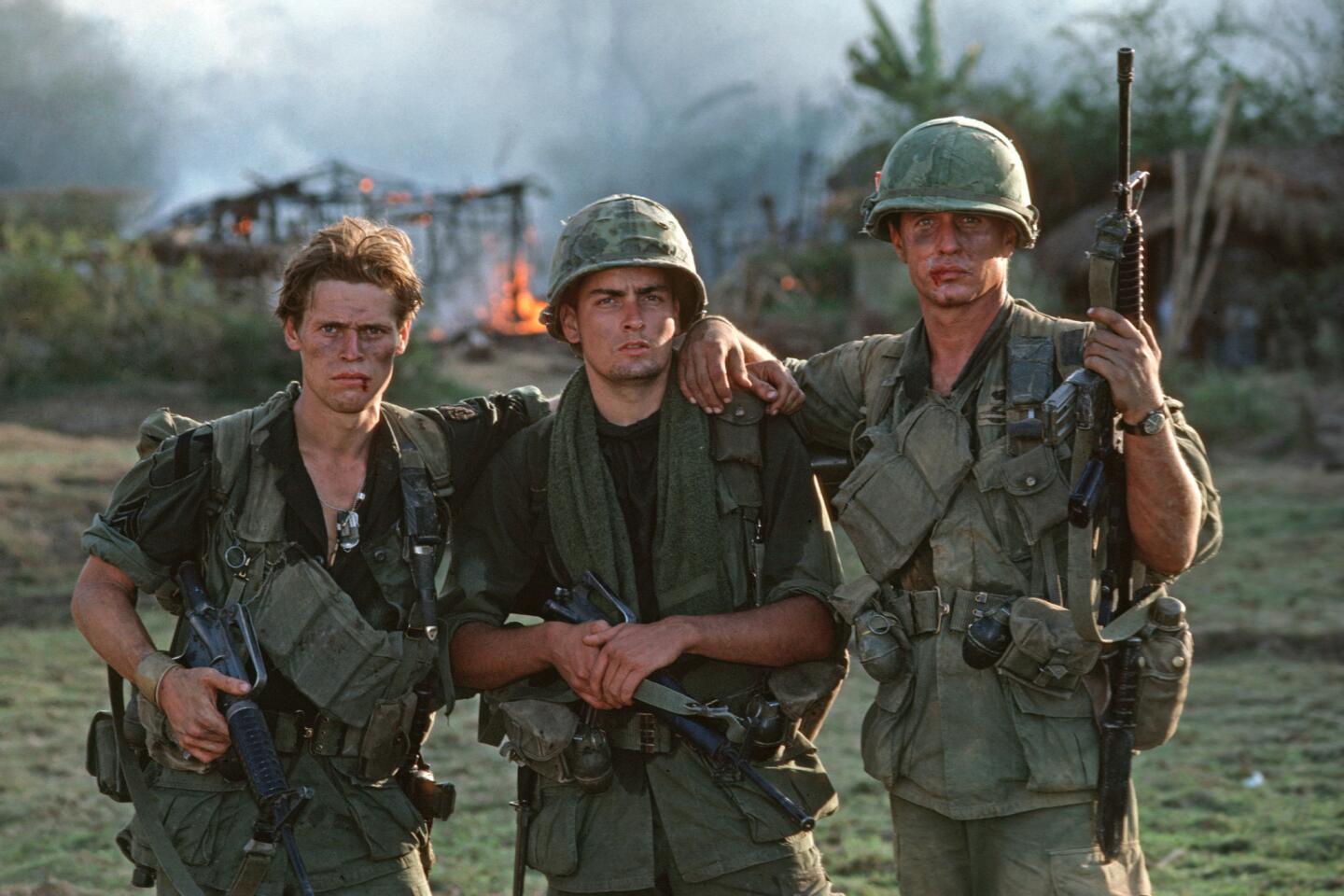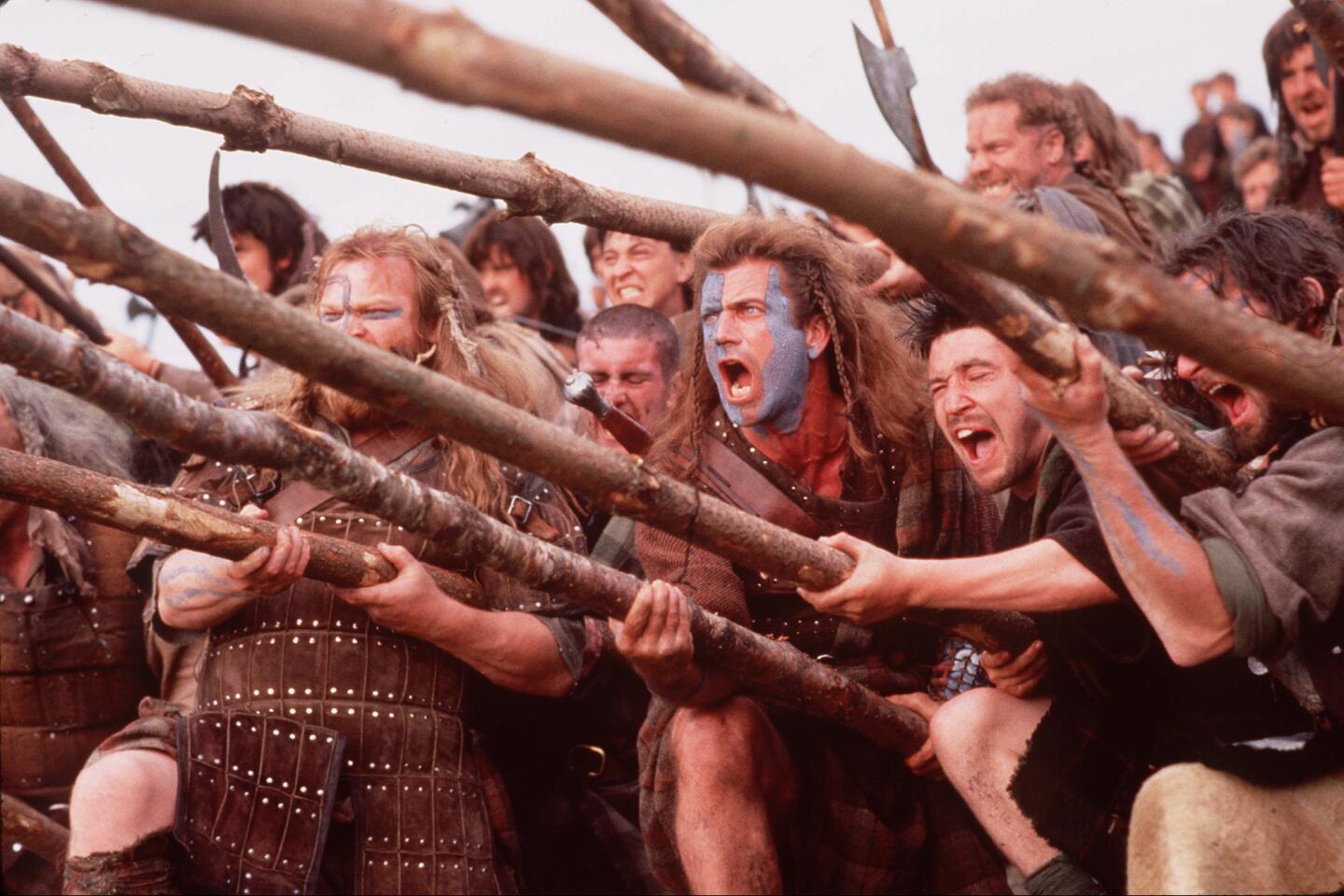’13 Hours: The Secret Soldiers of Benghazi,’ from Michael Bay, revisits a battle
The events surrounding the deaths of four Americans in Benghazi, Libya, in 2012 have been investigated, debated, politicized, scrutinized and criticized.
Now it’s time for Hollywood to weigh in — courtesy of Michael Bay.
Yes, that Michael Bay, the director of four “Transformers” movies and the current standard-bearer of big-budget action cinema. With his new movie, “13 Hours: The Secret Soldiers of Benghazi,” Bay has taken a break from Autobots and Decepticons to tell of a different battle: between half a dozen CIA contractors protecting U.S. compounds and the paramilitary groups who attacked them on the anniversary of Sept. 11.

The fact that he was walking into delicate territory was not lost on the director.
“My mother said, ‘Don’t do this movie,’” Bay said in an interview. “She thought it was too political a story. ‘They’ll rake you over the coals,’ she said. And I told her. ‘It’s not political. It’s a story of Americans who became heroes.’”
FULL COVERAGE: 2016 movies guide
“13 Hours” indeed focuses tightly on what happened on the ground — per Bay and several writers’ research — during the period a U.S. diplomatic outpost was attacked and a small group of security contractors took up arms to defend it. Among the film’s core messages is the selflessness of the fighters, many of whom were near the end of their tours — and, to top it off, had to beg their disapproving CIA boss to let them put their lives on the line.
But though explicit politicking is absent — Bay and the cast say partisan fingerpointing was far from their minds — the combination of an emotional movie with a U.S. official’s death abroad could be read as a broadside against President Obama’s administration and then-secretary of State Hillary Clinton — or at least be used by others to that end.
Since the attack, Benghazi has of course become a charged piece of cable-news shorthand. To one side of the aisle, it connotes the failures and concealments of a Democratic (and particularly Clinton-centric) leadership; to the other, it suggests a political cudgel wielded by point-scoring Republicans. The film does not — at least overtly — weigh in on these issues. Instead, like forerunners “Lone Survivor” and “American Sniper,” it centers on the noble intentions held, and daunting task faced, by the Americans who pick up weapons to fight a shadowy enemy overseas.
When Paramount opens “13 Hours” on Friday, it will thus commence a tricky experiment: Can a movie about a wildly polarizing event use the Hollywood lingua franca of gun battles and sentiment to transcend politics?
“We’d be naive if we didn’t think this would be politicized,” said John Krasinski, who plays one of the contractors, a still-anonymous former Navy SEAL who goes by the name Jack Silva. “Look at ‘American Sniper’ and what a Rorschach test it became — you can take any piece of art to support your side. But for the guys on the ground, there was no politics. There was just an objective. A simplicity, even. They got the call, and they went.”
The story, according to Chuck Hogan’s script and the Mitchell Zuckoff bestseller on which it’s based, happened like this:
In September 2012, men drawn from a pool of retired SEALs, Marines and Army Rangers was stationed at a CIA annex in Benghazi, part of a group known as the Global Response Staff (GRS). The team — all in their 30s or 40s, and including Silva, Mark “Oz” Geist, Kris “Tanto” Paronto, John “Tig” Tiegen, David “D.B.” Benton and Tyrone “Rone” Woods — had an easy camaraderie with one another but tension with the CIA station chief, a man they identify as “Bob.”
See more of Entertainment’s top stories on Facebook >>
In the film, Bob and some of the CIA officers saw the GRS team as little more than hired muscle; the group, in turn, saw Bob and some of the CIA officers as naïve or even ungrateful. There is a distinct class tension underlying “13 Hours,” on that clearly comes down on the side of the blue-collar contractors, portrayed as noble and self-sacrificing, and against the educated CIA officers, often rendered as entitled and whiny.
While the six GRS members are stationed at the annex, then-U.S. Ambassador to Libya Christopher Stevens made a trip to an American diplomatic outpost about a mile away. When Islamic militants attack the outpost, the GRS six wants to heed the distress call. But Bob, citing a lack of jurisdiction, holds them up for nearly 25 minutes, at which point the men disregard his command and went anyway. (This so-called stand-down order is controversial and was refuted by a House Intelligence Committee investigation — more on that shortly.) The GRS team arrived to find the compound burning and Stevens and others likely dead.
They would soon return to the CIA annex, which a few hours later would also be attacked, leading to a fierce rooftop gun battle. Their actions, the film unfolds, would save the lives of as many as several dozen Americans inside, but the battle claimed the life of Rone and badly wounded Oz. There was no trace of the U.S. military throughout the 13-hour period.
As they sat in a midtown Manhattan conference room recently, a world away from Benghazi, the real-life Oz, Tig and Tanto recalled their most vivid memories from the battle.
“I remember the shooting and the ringing in my ear, blowing my eardrum out,” said Oz (Max Martini in the film), an imposing presence with a no-nonsense manner and a dry sense of humor. “And how loud and bright those damn mortars were, like looking into the sun.”
“I remember the heat and smoke inside the villa” at the outpost, added Tig (Dominic Fumusa), the most laconic of the group. “Just the memory of that villa, so thick and black.”
“I remember the colors, the fire. Because there’s no such thing as a fog of war,” said Tanto (Pablo Schreiber). “That’s a political term. But there’s a lot of comedy in a situation like that too. I asked [a fellow team member] for a stripper that night. I thought that would be funny, to have a stripper as we were fighting.”
The GRS members say that, politics aside (many identify as conservative), they saw their narrative chiefly about springing to action at a time when no others were available to do so.
The trio (all of whom were on the film’s Malta set), also remain haunted by the death of Rone as well as Glen “Bub” Doherty, a Tripoli GRS member who arrived later. The film doesn’t get into many details of Rone’s personal life. (Zuckoff’s book notes a bit more, including a pair of marriages, three children, his training as a nurse as well as his reputation for enduring high levels of pain, which stood him in good stead as a SEAL in tours through Iraq, Somalia and Afghanistan.)
SIGN UP for the free Indie Focus movies newsletter >>
James Badge Dale, who plays the fallen fighter and spent time talking with his mother, said he found Rone a compelling figure. “As much as he wants to be home with his family, he had this purpose. He was a complicated man who was very good at what did professionally and had baggage like we all have baggage.”
In the wake of Rone’s death, and their frustration with what they say was a lack of support that night, Tig, Oz and Tanto decided to come forward (unlike, it should be said, Silva and Benton, whose identities remain secret). That same need to publicize the story, Bay said, motivated him too.
“I mean, how is it possible that even for people who pay close attention to the news, like I do, only know maybe 10% of the story of what happened on the ground?”
Of course, part of why they may not know is because the events have been overshadowed by politics. That continued deep into 2015 with the Rep. Trey Gowdy-led select hearing and Clinton, and so even as filmmakers say they hope to cut through the partisan sniping, their movie has become a part of it.
Fox News’ Megyn Kelly had a segment on her show recently in which she noted the film as “reintroduc[ing] Benghazi as a potential campaign issue that cannot be helpful to Mrs. Clinton.”
The progressive group Media Matters replied with its own salvo, citing the film as a desperate weapon in Fox’s anti-Clinton campaign. “After their much-hyped Benghazi select committee fizzled,” the group wrote in a news release last week, “they’ve now pinned their hopes on the director of The Rock.”
“13 Hours” highlights two major government failings. The first is Bob’s decision to hold back the GRS, despite the intelligence committee’s finding that this didn’t happen. The contractors maintain it did, though Tig says he believed that the order came from local CIA officials, not high up in the administration.
The second is the lack of support from any U.S. forces over the titular period of the movie. “13 Hours” makes the most of its opportunities to remind about the lack of added security or timely response -- there are numerous variations of characters telling each other “they’re not coming” as the hours wear on during the rooftop battle.
Bay said he combed through thousands of pages of manuscripts and met with numerous military and ex-military contacts to arrive at the conclusions he does in the film, including those about the film’s absence of a military response throughout the battle.
“It’s the pink elephant hanging over this,” said Bay, who for all the militarism of his movies has closely guarded his own political preferences. “How could this happen? Aren’t we better than this?”
He added, “They’re watching from a drone and they’re seeing everything and they’re not coming? Something is afoul.” The House intelligence committee, for its part, found in its 2014 report that there was no wrongdoing or delay on the part of the U.S. military or political appointees.
Most pertinent for the current electoral climate, Clinton’s name is never mentioned in “13 Hours,” and what effect the movie will have on her current stock or campaign is unclear. Essentially, that question rests on the issue of whether a piece of cinema that stirs in the viewer a more generalized outrage — the “how could this happen” question — will land with the same impact, or possibly an even stronger one, than an account that does name those responsible. Certainly many will come away from the film with a sense of anger, but viewers are left to decide where to direct it.
Paramount, meanwhile, hopes to sidestep many of those issues and tap into a more straight-ahead patriotic spirit. Bay and Krasinski were among those “13 Hours” principals heading to Dallas this week, where on Tuesday night AT&T Stadium was to be the site of the “13 Hours” world premiere. The event was also scheduled to include a concert featuring country act the Band Perry, former Soundgarden frontman Chris Cornell (he contributed an end-credit song) and the so-called patriotic rock band Madison Rising.
Those involved with the film say they hope that a national pride becomes the essential takeaway.
“Whatever your politics are, I think there’s a little bit of forgetting what it means to be an American, the sacrifice and the duty,” Krasinski said. “I hope this movie can help bring that back.”
Twitter: @ZeitchikLAT
MORE:
With Benghazi film ’13 Hours,’ Michael Bay could enter political fray
Benghazi hearing ends after extraordinary 11-hour grilling of Clinton
More to Read
Only good movies
Get the Indie Focus newsletter, Mark Olsen's weekly guide to the world of cinema.
You may occasionally receive promotional content from the Los Angeles Times.
